 On August 8th, twelve outstanding women working in STEM on various hot topics related to Tanzanian lifestyle, ecology, agriculture, engineering and health will be presenting their work at Nane Nane. You will be able to enjoy a day of science talk, hands-on demonstrations, discussions, and become amazed by how important the role of women in STEM has been and currently is. We hope that these women will act as a role model for other women to engage in research, outreach and other activities across various disciplines. Come and listen – it is free!
On August 8th, twelve outstanding women working in STEM on various hot topics related to Tanzanian lifestyle, ecology, agriculture, engineering and health will be presenting their work at Nane Nane. You will be able to enjoy a day of science talk, hands-on demonstrations, discussions, and become amazed by how important the role of women in STEM has been and currently is. We hope that these women will act as a role model for other women to engage in research, outreach and other activities across various disciplines. Come and listen – it is free!
Meet the Soapbox Science Arusha Organising team
Details of the location and timing of the event
Date: August 8th 2019
Address: NaneNane
Time: 11am-2pm
Speakers
Selected from a competitive pool of researchers, our speakers will be sharing their work in technology, science, medicine and engineering. The speakers and their discussion topics are:
Ms Joyce Elisadiki, NM-AIST and University of Dodoma, “Water and Energy nexus in Tanzania”
 Born in Kilimanjaro-Tanzania, she is currently a Ph.D. student in Sustainable Energy Science and Engineering at the Nelson Mandela African Institution of Science and Technology (NM-AIST) specializing in Renewable energy. She pursued her M.Sc. (Physics), and B.Sc Education (Physics and Chemistry) at University of Dar es Salaam. She is working as an assistant lecturer in the Department of Physics at the University Dodoma. As an assistant lecturer, she is responsible for teaching undergraduate Physics courses, supervising student’s individual projects and experiment/practical classes. Her current research interest focuses on water purification by using energy efficient technologies to address water and energy nexus and materials for energy storage. Currently, she is working on synthesizing and characterizing porous carbon capacitive deionization (CDI) electrode materials from biomass for water purification.
Born in Kilimanjaro-Tanzania, she is currently a Ph.D. student in Sustainable Energy Science and Engineering at the Nelson Mandela African Institution of Science and Technology (NM-AIST) specializing in Renewable energy. She pursued her M.Sc. (Physics), and B.Sc Education (Physics and Chemistry) at University of Dar es Salaam. She is working as an assistant lecturer in the Department of Physics at the University Dodoma. As an assistant lecturer, she is responsible for teaching undergraduate Physics courses, supervising student’s individual projects and experiment/practical classes. Her current research interest focuses on water purification by using energy efficient technologies to address water and energy nexus and materials for energy storage. Currently, she is working on synthesizing and characterizing porous carbon capacitive deionization (CDI) electrode materials from biomass for water purification.
During soapbox event I will talk about “Energy efficiency water purification technology with biomass-based electrodes” this will publicize my research work to the community and to the world in general and also will help me to create network with other scientists.
Miss Irene Evarist Beebwa, NM-AIST, “Traditional Knowledge and ICT”
 My name is Irene Beebwa, Student at Nelson Mandela African Institution of Science and Technology in information and Communication Science and Engineering. I have the experience of two years serving at the capacity of IT systems administrator. I have an interest in Data science and open science, Internet governance, cybersecurity and related ethical issues. My topic is Digital Inclusion. The motivation behind this topic is the existence of the digital divide to communities. Therefore awareness of the benefit of digital inclusion can help to identify the marginalized group and bridging that gap.
My name is Irene Beebwa, Student at Nelson Mandela African Institution of Science and Technology in information and Communication Science and Engineering. I have the experience of two years serving at the capacity of IT systems administrator. I have an interest in Data science and open science, Internet governance, cybersecurity and related ethical issues. My topic is Digital Inclusion. The motivation behind this topic is the existence of the digital divide to communities. Therefore awareness of the benefit of digital inclusion can help to identify the marginalized group and bridging that gap.
Dr Katharina Kreppel, (@Katharina Kreppel), NM-AIST, “Can we stop getting diseases from animals in Africa?”
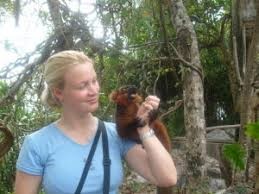 I am a researcher who loves to find out more about tropical diseases which can be transmitted from animals to humans such as plague, Ebola and malaria for example. So far I worked mainly in Madagascar and Tanzania. I collect mosquitoes and samples from animals and I record climate data to understand how temperature and humidity affect the way diseases get transmitted between animals and humans. People are not aware of the diseases they can get from animals and how easy it is to avoid getting sick and I want to tell them about it
I am a researcher who loves to find out more about tropical diseases which can be transmitted from animals to humans such as plague, Ebola and malaria for example. So far I worked mainly in Madagascar and Tanzania. I collect mosquitoes and samples from animals and I record climate data to understand how temperature and humidity affect the way diseases get transmitted between animals and humans. People are not aware of the diseases they can get from animals and how easy it is to avoid getting sick and I want to tell them about it
Dr Matshidiso Matabane (@Bailekae24), SACNASP, “Celebrating Women in Science”
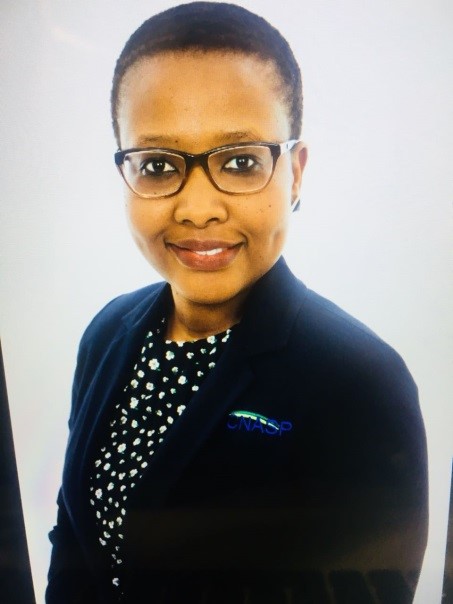 Dr Matshidiso Matabane is the Information Officer at the South African Council for Natural Scientific Professions (SACNASP). My topic will cover “Celebrating Women in Science”. We continue to deal with women remaining under-represented in the science space. However, It is encouraging to see many organisations working hard to close the gender gap. Gender should not be an issue; we are all scientists.
Dr Matshidiso Matabane is the Information Officer at the South African Council for Natural Scientific Professions (SACNASP). My topic will cover “Celebrating Women in Science”. We continue to deal with women remaining under-represented in the science space. However, It is encouraging to see many organisations working hard to close the gender gap. Gender should not be an issue; we are all scientists.
Dr. Anitha Philbert, Uni Dar es Salaam, “Arboviral zoonoses: Vectors and reservoirs”
Dr. Rebecca Kariuki, NM-AIST, “Northern Tanzanian Futures: Stakeholder Perspectives and Land Use Scenario Modelling”

Adaptation and Resilience to Climate Change project (ARCC)
York Institute of Tropical Ecosystem Network (KITE)
Dr. Rebecca Kariuki is a postdoctoral researcher at the Nelson Mandela African Institution of Science and Technology (NM-AIST) in Arusha, Tanzania. She is part of the ‘Adaptation and Resilience to Climate Change (ARCC) Project which seeks to understand long-term changes in the interactions between societies, climates, landscapes and protected areas in northern Tanzania. Her research involves developing scenarios of future land use change in the greater Serengeti ecosystem using stakeholders’ insights and modelling. She is interested in presenting her research at the soapbox event as she would like to convey her research to a non-specialist audience, such as the general public, primary and secondary school students, who would otherwise not hear about it. She is also interested in participating in public learning and the scientific debate that ensues after the presentations
Mrs. Beatrice Mukami Muriuki (@Beatric59627735), WACCBIP-UNIVERSITY OF GHANA, “Endemic Burkitt Lymphoma is a Curable Childhood Cancer.”
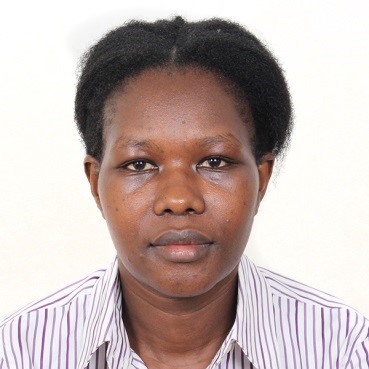 I am Beatrice Muriuki, a Kenyan female pursuing a PhD in Cell and Molecular Biology of Infectious pathogens at WACCBIP-University of Ghana. I am investigating the immune functions in endemic Burkitt Lymphoma (eBL) pathogenesis: which is the most common and highly fatal childhood cancer in Equatorial Africa. During my interaction with eBL patients and their parents/guardians, I have observed that there exists limited knowledge of eBL. Patients seek medical attention at an advanced cancer stage, which hinder early diagnosis and timely initiation of treatment, resulting in death of the patients. I wish to create awareness about clinical manifestation, prevention, treatment and management of eBL, in order to reduce mortality due to this childhood cancer.
I am Beatrice Muriuki, a Kenyan female pursuing a PhD in Cell and Molecular Biology of Infectious pathogens at WACCBIP-University of Ghana. I am investigating the immune functions in endemic Burkitt Lymphoma (eBL) pathogenesis: which is the most common and highly fatal childhood cancer in Equatorial Africa. During my interaction with eBL patients and their parents/guardians, I have observed that there exists limited knowledge of eBL. Patients seek medical attention at an advanced cancer stage, which hinder early diagnosis and timely initiation of treatment, resulting in death of the patients. I wish to create awareness about clinical manifestation, prevention, treatment and management of eBL, in order to reduce mortality due to this childhood cancer.
Miss Neema Mtenga, NM-AIST, “Supressive plants”
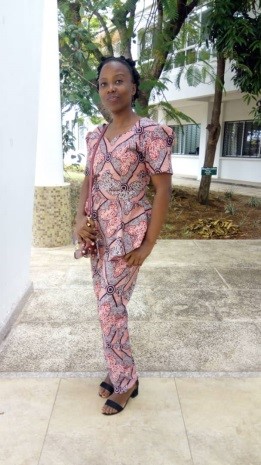 I am Neema Mtenga, holder of Bachelor degree of Science in Wildlife Management, previous was working as research assistant at Wildlife conservation society. Currently I am a graduate student in life science specialized in Biodiversity and Ecosystem Management. I have passion on biodiversity conservation and my previous research area was on Invasive species management. During the event I will talk on the use of suppressive plant on management on invasive weeds which are ecologically and environmentally friend. Why because I want people to stop use of chemical pesticides which are not good to the environment and their health.
I am Neema Mtenga, holder of Bachelor degree of Science in Wildlife Management, previous was working as research assistant at Wildlife conservation society. Currently I am a graduate student in life science specialized in Biodiversity and Ecosystem Management. I have passion on biodiversity conservation and my previous research area was on Invasive species management. During the event I will talk on the use of suppressive plant on management on invasive weeds which are ecologically and environmentally friend. Why because I want people to stop use of chemical pesticides which are not good to the environment and their health.
Philipina Shayo, Ministry of Natural Resources and Tourism, “The contribution of Oyster nuts (Telfairia pedata) to Biodiversity Conservation and Improved Community Livelihoods in Northern Tanzania.”
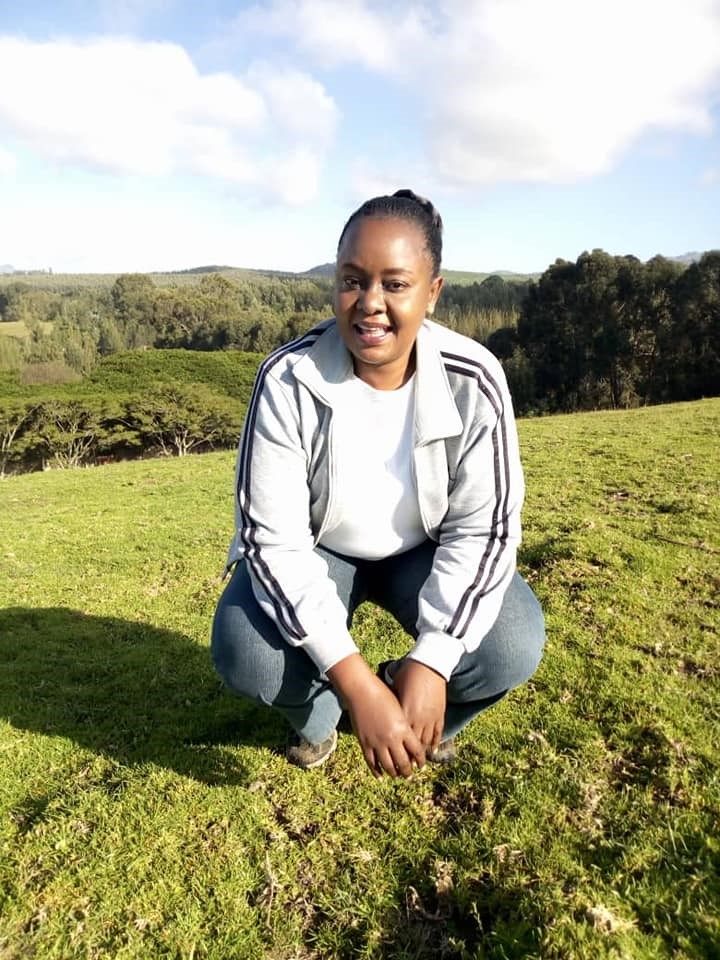 Ms. Shayo is an employee of Ministry of Natural Resources and Tourism based at Forestry Training Institute-Olmotonyi since 2006. She has a substantive experience of over 13 years in teaching in the field of forestry and related fields including agroforestry, climate change, community forestry, climate smart agriculture, conservation agriculture, youth and HIV/AIDS, gender and development and Environmental conservation and supervise Students special projects.
Ms. Shayo is an employee of Ministry of Natural Resources and Tourism based at Forestry Training Institute-Olmotonyi since 2006. She has a substantive experience of over 13 years in teaching in the field of forestry and related fields including agroforestry, climate change, community forestry, climate smart agriculture, conservation agriculture, youth and HIV/AIDS, gender and development and Environmental conservation and supervise Students special projects.
Dr. Asanterabi Lowassa, TAWIRI “How gender relations influence performance of microcredit funded business operated”
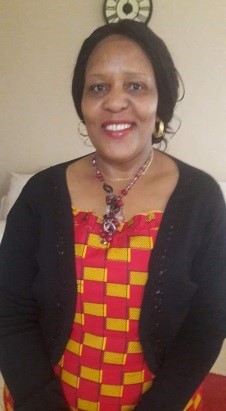 Dr. Asanterabi Lowasa is a social – ecological research scientist based at the Tanzania Wildlife Research Institute, in Tanzania. She completed her PhD at University of Dar Es Salaam in 2018, with research project titled ‘’Institutional Framework of Illegal Bushmeat Hunting Among Local Communities living Adjacent to Serengeti National Park, Tanzania. Lowassa’s area of interest focuses on sociological studies primarily on Gender and Human-Environmental Interactions, including the Institutional arrangements for Natural Resource Use and Governance.
Dr. Asanterabi Lowasa is a social – ecological research scientist based at the Tanzania Wildlife Research Institute, in Tanzania. She completed her PhD at University of Dar Es Salaam in 2018, with research project titled ‘’Institutional Framework of Illegal Bushmeat Hunting Among Local Communities living Adjacent to Serengeti National Park, Tanzania. Lowassa’s area of interest focuses on sociological studies primarily on Gender and Human-Environmental Interactions, including the Institutional arrangements for Natural Resource Use and Governance.
Ms. Faith Mpondo (@faith_mpondo), Uni of Dodoma, “Pollinators diversity and potential for livelihood diversification”
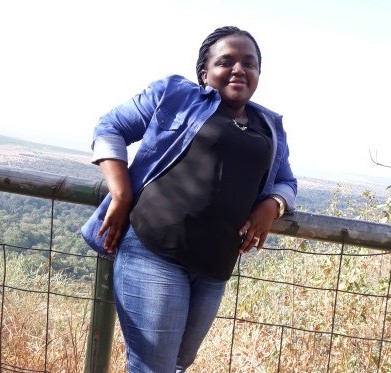 Hello everybody, my name is Faith Mpondo Academician at University of Dodoma and PhD candidate Nelson Mandela African Institution of Science and Technology. I am interested to talk about native plants contribution to the conservation of Pollinators due to the current decline and threats facing pollinators. Raising local awareness is vital towards serving pollinators. Thank you.
Hello everybody, my name is Faith Mpondo Academician at University of Dodoma and PhD candidate Nelson Mandela African Institution of Science and Technology. I am interested to talk about native plants contribution to the conservation of Pollinators due to the current decline and threats facing pollinators. Raising local awareness is vital towards serving pollinators. Thank you.
Dr. Pavi Bangalore, NM-AIST, “Dryland Agriculture”
Rebecca Ryakitimbo (@rryakitimbo1), Kuza STEAM Generation/Paradigm Innitiative, “TV Whitespaces for rural connectivity”
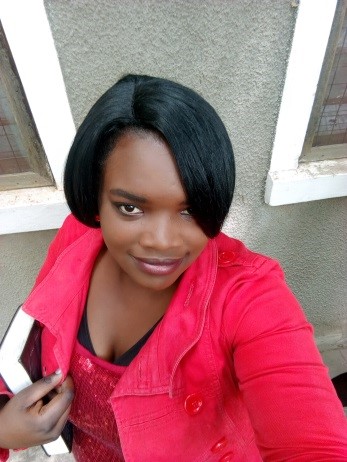 I want to become a soapbox science speaker because I am passionate about sciences and have been working towards bridging gender gaps in sciences with hopes of growing a more inclusive society with women taking up careers in STEM.I believe science and technology play a great role in building economic development growing innovation and serving as a catalyst for sustainable livelihoods. Speaking as a soapbox science speaker will help me be able to share some of the work that women including myself are doing with science to build innovation and grow their communities.
I want to become a soapbox science speaker because I am passionate about sciences and have been working towards bridging gender gaps in sciences with hopes of growing a more inclusive society with women taking up careers in STEM.I believe science and technology play a great role in building economic development growing innovation and serving as a catalyst for sustainable livelihoods. Speaking as a soapbox science speaker will help me be able to share some of the work that women including myself are doing with science to build innovation and grow their communities.
Miss Nancy Felix (nancyfelix251), NM-AIST, “Wildlife conservation is the responsibility of everyone”
 Nancy Felix is a Student at Nelson Mandela African Institution of Science and Technology, Arusha. My interest is wildlife conservation mainly carnivores, lions. Lions are among Vulnerable carnivores worldwide whose population has declined drastically. Therefore, my concern is to understand community level of awareness on the significance of lions within the ecosystem and promote their conservation. My study involves speaking to people about the roles of lion within the ecosystem. Give knowledge on lion ecology, demography and their major factors that threat their survival. Why talk about this: because of the potentials that Arusha and Manyara region have to protect valuable resources of wildlife and good environmental conditions that are strongly influenced by the conservation of protected areas and can only survive with local community support.
Nancy Felix is a Student at Nelson Mandela African Institution of Science and Technology, Arusha. My interest is wildlife conservation mainly carnivores, lions. Lions are among Vulnerable carnivores worldwide whose population has declined drastically. Therefore, my concern is to understand community level of awareness on the significance of lions within the ecosystem and promote their conservation. My study involves speaking to people about the roles of lion within the ecosystem. Give knowledge on lion ecology, demography and their major factors that threat their survival. Why talk about this: because of the potentials that Arusha and Manyara region have to protect valuable resources of wildlife and good environmental conditions that are strongly influenced by the conservation of protected areas and can only survive with local community support.
